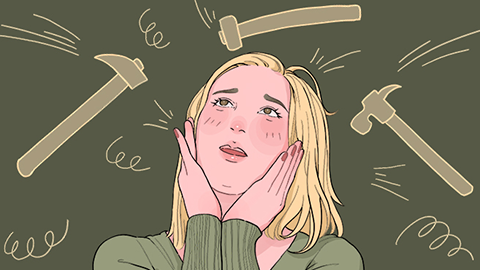What to do about bipolar disorder
Bipolar disorder may be caused by genetic susceptibility, neuroendocrine dysfunction, chronic stress, substance abuse, or brain injury. It can generally be managed through medication, psychotherapy, and lifestyle management. If abnormalities occur, timely medical attention is recommended. Detailed analysis is as follows:

1. Genetic susceptibility: A family history of bipolar disorder suggests that genetic factors may increase the likelihood of developing the condition. It is recommended to undergo regular psychological assessments for early detection and intervention to reduce the impact of the disorder.
2. Neuroendocrine dysfunction: Dysfunction of the hypothalamic-pituitary-adrenal (HPA) axis and hormonal imbalances can affect emotional regulation and increase the risk of bipolar disorder. Maintaining a regular sleep-wake cycle, avoiding excessive fatigue, and stabilizing the endocrine system are recommended.
3. Chronic stress: Prolonged exposure to stressors such as work pressure and interpersonal conflicts can disrupt the emotional regulation system, leading to bipolar disorder. Symptoms often include alternating episodes of elevated and depressed mood, fluctuating energy levels, and social withdrawal. Primary interventions include psychological therapies, such as cognitive behavioral therapy.
4. Substance abuse: Long-term use of substances such as alcohol and stimulants can disrupt neurotransmitter balance and trigger bipolar disorder. Common symptoms include extreme mood swings, impulsive behavior, and physical dependence. Patients may take medications such as diazepam tablets, naloxone hydrochloride injection, and olanzapine tablets under medical supervision.
5. Brain injury: Trauma to the head, such as impact injuries, can damage brain regions involved in emotional regulation, such as the prefrontal cortex, leading to bipolar disorder. Symptoms often include headaches, memory impairment, and complex clinical presentations. Treatment should follow medical advice to use medications such as lamotrigine tablets, risperidone tablets, and sodium citicoline capsules, combined with neurological rehabilitation and psychotherapy.
In daily life, it is important to maintain a stable living environment, avoid intense stimuli, adhere to regular exercise, and manage emotions rationally. If significant emotional dysregulation or behavioral abnormalities occur, prompt medical consultation and systematic treatment are necessary.






